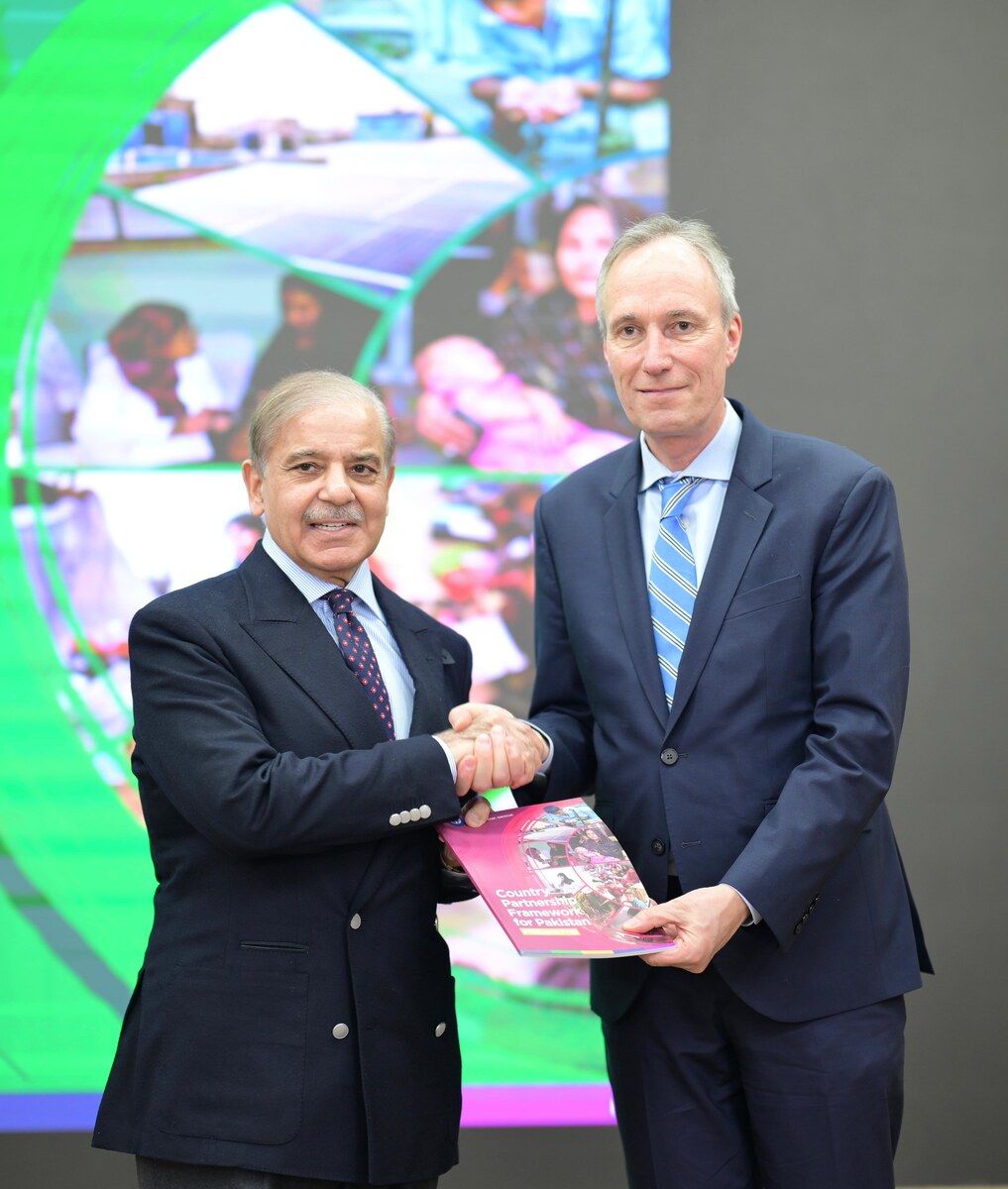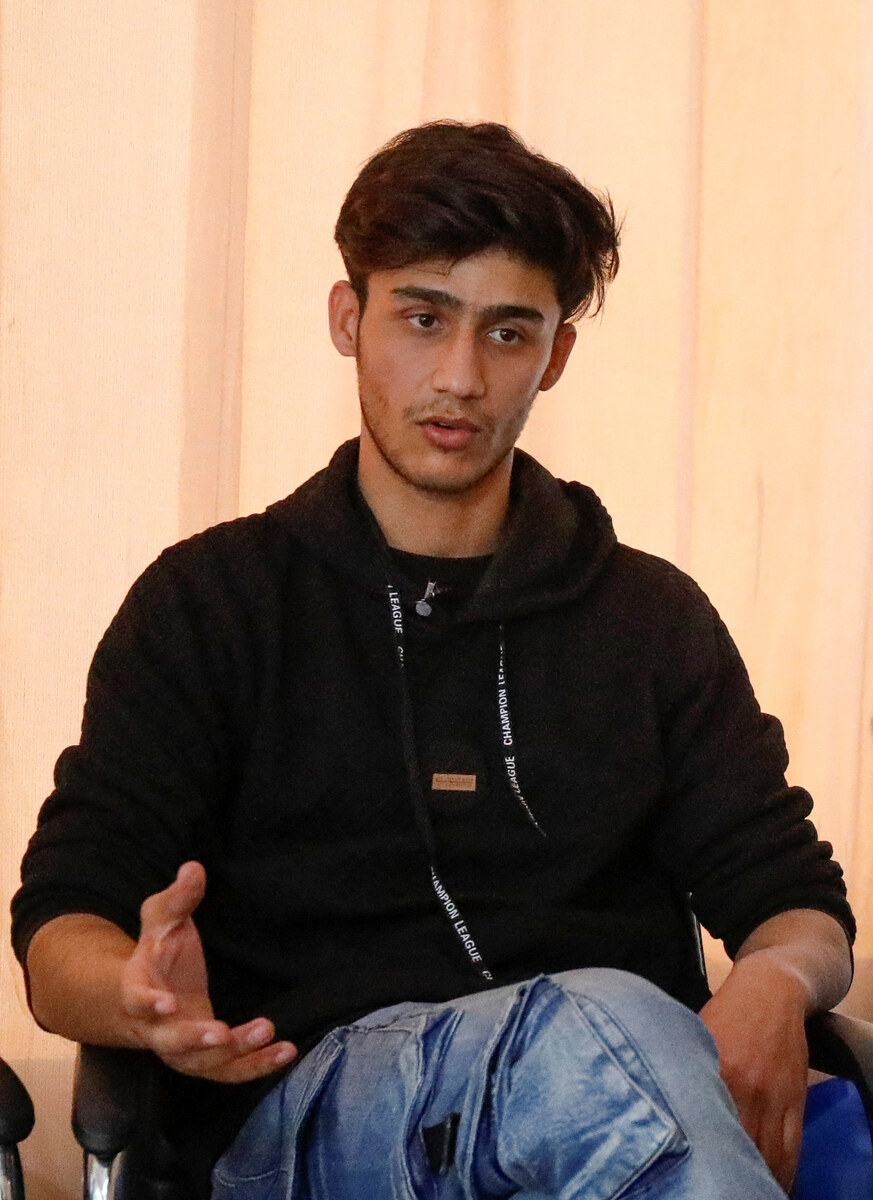1 / 51
This Rolls Royce was gifted to Jinnah by the Queen of England and delivered to him on April 2, 1948 and it was owned by Pakistan heads of state till 1950 before it was acquired by the UK high commissioner. (AN photo by M.F. Sabir)
2 / 51
Besides Rolls-Royce, nearly 27 Ford, Mustang, Aston Martin, Mercedes, MGs, Buick, Cadillac and Jaguar and other vintage and classic cars are part of the rally. (AN photo by M.F. Sabir)
3 / 51
This Rolls Royce was gifted to Jinnah by the Queen of England and delivered to him on April 2, 1948 and it was owned by Pakistan heads of state till 1950 before it was acquired by the UK high commissioner. (AN photo by M.F. Sabir)
4 / 51
Karim Chhapra, owner of the historical Rolls Royce Silver Ghost 1924, bought this car from Nawabs of Bahawalpur. The car was used by Jinnah and Mountbatten in 1947. (AN photo)
5 / 51
Rolls Royce Silver Ghost 1924 was owned by Nawab of Bawalpur. (AN photo)
6 / 51
Karim Chhapra, a member of VCCCP, restored this Rolls Royce Silver Ghost 1924, beingused by Jinnah on 14 August 1947, after acquiring from family of Nawab of Bawalpur in 2004. (AN photo)
7 / 51
Karim Chhapra, a member of VCCCP, restored this Rolls Royce Silver Ghost 1924, being used by Jinnah on 14 August 1947, after acquiring from family of Nawab of Bawalpur in 2004. (AN photo)
8 / 51
Karim Chhapra, a member of VCCCP, restored this Rolls Royce Silver Ghost 1924, being used by Jinnah on 14 August 1947, after acquiring from family of Nawab of Bawalpur in 2004. (AN photo)
9 / 51
Besides Rolls-Royce, nearly 27 Ford, Mustang, Aston Martin, Mercedes, MGs, Buick, Cadillac and Jaguar and other vintage and classic cars are part of the rally. (AN photo by M.F. Sabir)
10 / 51
Besides Rolls-Royce, nearly 27 Ford, Mustang, Aston Martin, Mercedes, MGs, Buick, Cadillac and Jaguar and other vintage and classic cars are part of the rally. (AN photo by M.F. Sabir)
11 / 51
Besides Rolls-Royce, nearly 27 Ford, Mustang, Aston Martin, Mercedes, MGs, Buick, Cadillac and Jaguar and other vintage and classic cars are part of the rally. (AN photo by M.F. Sabir)
12 / 51
Sindh Governor, Imran Ismail, and U.S. Consul General in Karachi, JoAnne Wagner are seated in the Rolls Royce Silver Ghost 1924, once used by Muhammad Ali Jinnah for going his oath taking as first governor general of Pakistan. (AN photo by M.F. Sabir)
13 / 51
Besides Rolls-Royce, nearly 27 Ford, Mustang, Aston Martin, Mercedes, MGs, Buick, Cadillac and Jaguar and other vintage and classic cars are part of the rally. (AN photo by M.F. Sabir)
14 / 51
Besides Rolls-Royce, nearly 27 Ford, Mustang, Aston Martin, Mercedes, MGs, Buick, Cadillac and Jaguar and other vintage and classic cars are part of the rally. (AN photo by M.F. Sabir)
15 / 51
Members of the VCCCP with their cars before started of the rally at Sindh’s Governor House here on Saturday. (AN photo by M.F. Sabir)
16 / 51
Besides Rolls-Royce, nearly 27 Ford, Mustang, Aston Martin, Mercedes, MGs, Buick, Cadillac and Jaguar and other vintage and classic cars are part of the rally. (AN photo by M.F. Sabir)
17 / 51
Besides Rolls-Royce, nearly 27 Ford, Mustang, Aston Martin, Mercedes, MGs, Buick, Cadillac and Jaguar and other vintage and classic cars are part of the rally. (AN photo by M.F. Sabir)
18 / 51
Besides Rolls-Royce, nearly 27 Ford, Mustang, Aston Martin, Mercedes, MGs, Buick, Cadillac and Jaguar and other vintage and classic cars are part of the rally. (AN photo by M.F. Sabir)
20 / 51
Besides Rolls-Royce, nearly 27 Ford, Mustang, Aston Martin, Mercedes, MGs, Buick, Cadillac and Jaguar and other vintage and classic cars are part of the rally. (AN photo by M.F. Sabir)
21 / 51
Besides Rolls-Royce, nearly 27 Ford, Mustang, Aston Martin, Mercedes, MGs, Buick, Cadillac and Jaguar and other vintage and classic cars are part of the rally. (AN photo by M.F. Sabir)
22 / 51
Besides Rolls-Royce, nearly 27 Ford, Mustang, Aston Martin, Mercedes, MGs, Buick, Cadillac and Jaguar and other vintage and classic cars are part of the rally. (AN photo by M.F. Sabir)
23 / 51
Sindh Governor, Imran Ismail, and U.S. Consul General in Karachi, JoAnne Wagner visited the car show before start of the rally here at Governor House, Karachi on Saturday. (AN photo by M.F. Sabir)
24 / 51
Sindh Governor, Imran Ismail, and U.S. Consul General in Karachi, JoAnne Wagner visited the car show before start of the rally here at Governor House, Karachi on Saturday. (AN photo by M.F. Sabir)
25 / 51
Sindh Governor, Imran Ismail, and U.S. Consul General in Karachi, JoAnne Wagner are seated in the Rolls Royce Silver Ghost 1924, once used by Muhammad Ali Jinnah for going his oath taking as first governor general of Pakistan. (AN photo by M.F. Sabir)
26 / 51
Besides Rolls-Royce, nearly 27 Ford, Mustang, Aston Martin, Mercedes, MGs, Buick, Cadillac and Jaguar and other vintage and classic cars are part of the rally. (AN photo by M.F. Sabir)
28 / 51
Besides Rolls-Royce, nearly 27 Ford, Mustang, Aston Martin, Mercedes, MGs, Buick, Cadillac and Jaguar and other vintage and classic cars are part of the rally. (AN photo by M.F. Sabir)
29 / 51
Besides Rolls-Royce, nearly 27 Ford, Mustang, Aston Martin, Mercedes, MGs, Buick, Cadillac and Jaguar and other vintage and classic cars are part of the rally. (AN photo by M.F. Sabir)
30 / 51
Besides Rolls-Royce, nearly 27 Ford, Mustang, Aston Martin, Mercedes, MGs, Buick, Cadillac and Jaguar and other vintage and classic cars are part of the rally. (AN photo by M.F. Sabir)
31 / 51
Besides Rolls-Royce, nearly 27 Ford, Mustang, Aston Martin, Mercedes, MGs, Buick, Cadillac and Jaguar and other vintage and classic cars are part of the rally. (AN photo by M.F. Sabir)
32 / 51
Besides Rolls-Royce, nearly 27 Ford, Mustang, Aston Martin, Mercedes, MGs, Buick, Cadillac and Jaguar and other vintage and classic cars are part of the rally. (AN photo by M.F. Sabir)
34 / 51
Besides Rolls-Royce, nearly 27 Ford, Mustang, Aston Martin, Mercedes, MGs, Buick, Cadillac and Jaguar and other vintage and classic cars are part of the rally. (AN photo by M.F. Sabir)
35 / 51
Besides Rolls-Royce, nearly 27 Ford, Mustang, Aston Martin, Mercedes, MGs, Buick, Cadillac and Jaguar and other vintage and classic cars are part of the rally. (AN photo by M.F. Sabir)
36 / 51
Besides Rolls-Royce, nearly 27 Ford, Mustang, Aston Martin, Mercedes, MGs, Buick, Cadillac and Jaguar and other vintage and classic cars are part of the rally. (AN photo by M.F. Sabir)
37 / 51
Karim Chhapra, a member of VCCCP, restored this Rolls Royce Silver Ghost 1924, being used by Jinnah on 14 August 1947, after acquiring from family of Nawab of Bawalpur in 2004. (AN photo)
38 / 51
This Rolls Royce was gifted to Jinnah by the Queen of England and delivered to him on April 2, 1948 and it was owned by Pakistan heads of state till 1950 before it was acquired by the UK high commissioner. (AN photo by M.F. Sabir)
39 / 51
Besides Rolls-Royce, nearly 27 Ford, Mustang, Aston Martin, Mercedes, MGs, Buick, Cadillac and Jaguar and other vintage and classic cars are part of the rally. (AN photo by M.F. Sabir)
40 / 51
Besides Rolls-Royce, nearly 27 Ford, Mustang, Aston Martin, Mercedes, MGs, Buick, Cadillac and Jaguar and other vintage and classic cars are part of the rally. (AN photo by M.F. Sabir)
41 / 51
Besides Rolls-Royce, nearly 27 Ford, Mustang, Aston Martin, Mercedes, MGs, Buick, Cadillac and Jaguar and other vintage and classic cars are part of the rally. (AN photo by M.F. Sabir)
42 / 51
Besides Rolls-Royce, nearly 27 Ford, Mustang, Aston Martin, Mercedes, MGs, Buick, Cadillac and Jaguar and other vintage and classic cars are part of the rally. (AN photo by M.F. Sabir)
43 / 51
Besides Rolls-Royce, nearly 27 Ford, Mustang, Aston Martin, Mercedes, MGs, Buick, Cadillac and Jaguar and other vintage and classic cars are part of the rally. (AN photo by M.F. Sabir)
44 / 51
Sindh Governor, Imran Ismail, and U.S. Consul General in Karachi, JoAnne Wagner are seated in the Rolls Royce Silver Ghost 1924 as rally starts at Governor House, Karachi here on Saturday. (AN photo by M.F. Sabir)
45 / 51
Sindh Governor, Imran Ismail, and U.S. Consul General in Karachi, JoAnne Wagner are seated in the Rolls Royce Silver Ghost 1924 as rally starts at Governor House, Karachi here on Saturday. (AN photo by M.F. Sabir)
46 / 51
Besides Rolls-Royce, nearly 27 Ford, Mustang, Aston Martin, Mercedes, MGs, Buick, Cadillac and Jaguar and other vintage and classic cars are part of the rally. (AN photo by M.F. Sabir)
47 / 51
Besides Rolls-Royce, nearly 27 Ford, Mustang, Aston Martin, Mercedes, MGs, Buick, Cadillac and Jaguar and other vintage and classic cars are part of the rally. (AN photo by M.F. Sabir)
48 / 51
The Vintage & Classic Car Club (VCCCP) was formed in 1986 by Mohsin Ikram and Jim Agha to cater to those who shared their passion of collecting, restoring and driving vintage and classic cars. (AN photo by M.F. Sabir)
49 / 51
Besides Rolls-Royce, nearly 27 Ford, Mustang, Aston Martin, Mercedes, MGs, Buick, Cadillac and Jaguar and other vintage and classic cars are part of the rally. (AN photo by M.F. Sabir)
50 / 51
Besides Rolls-Royce, nearly 27 Ford, Mustang, Aston Martin, Mercedes, MGs, Buick, Cadillac and Jaguar and other vintage and classic cars are part of the rally. (AN photo by M.F. Sabir)
51 / 51
Besides Rolls-Royce, nearly 27 Ford, Mustang, Aston Martin, Mercedes, MGs, Buick, Cadillac and Jaguar and other vintage and classic cars are part of the rally. (AN photo by M.F. Sabir)





































































